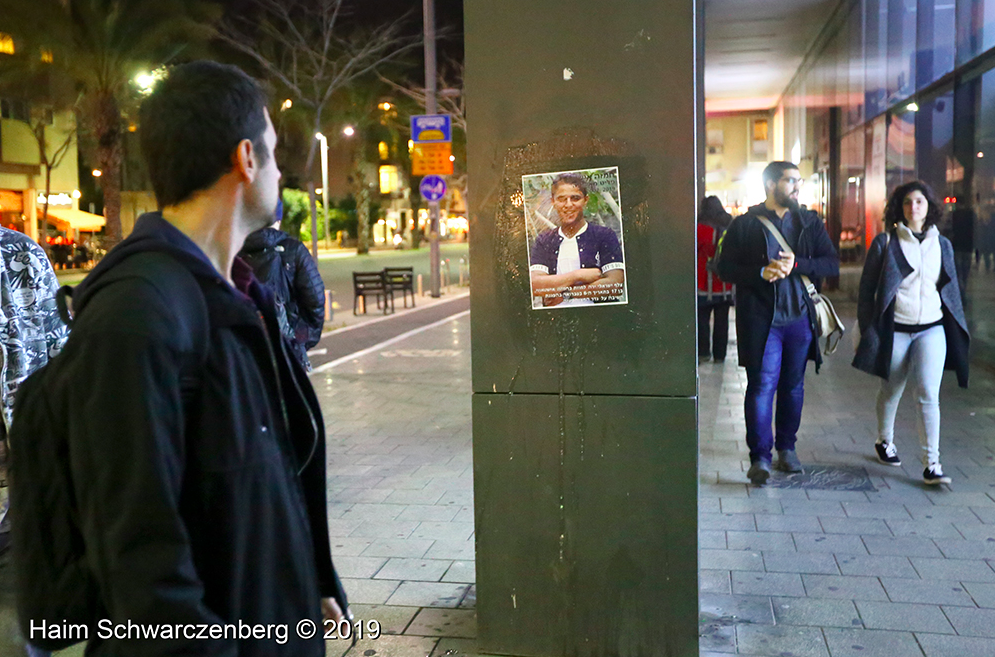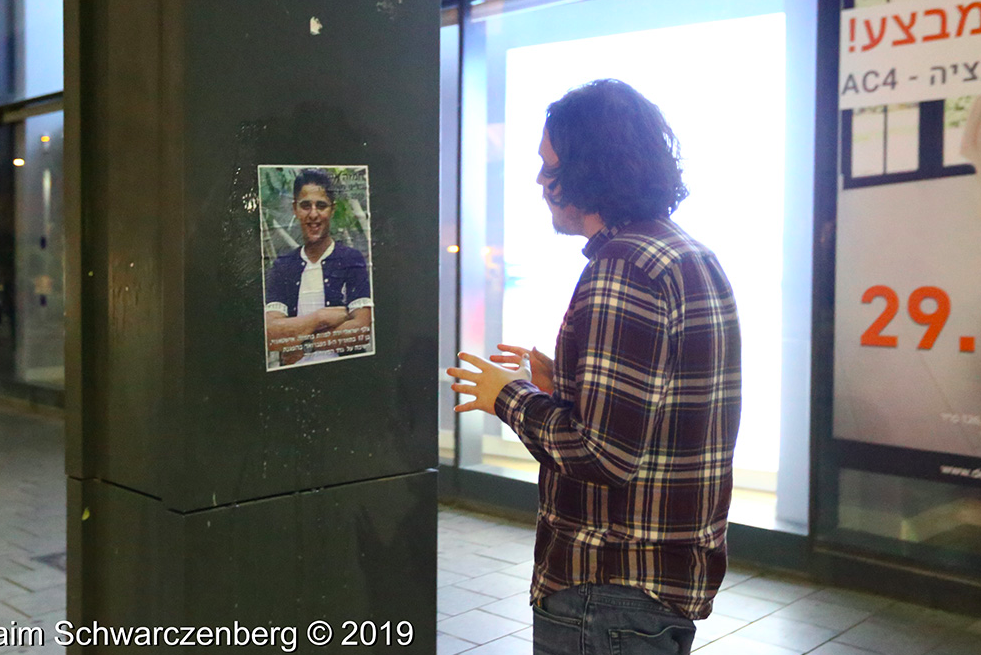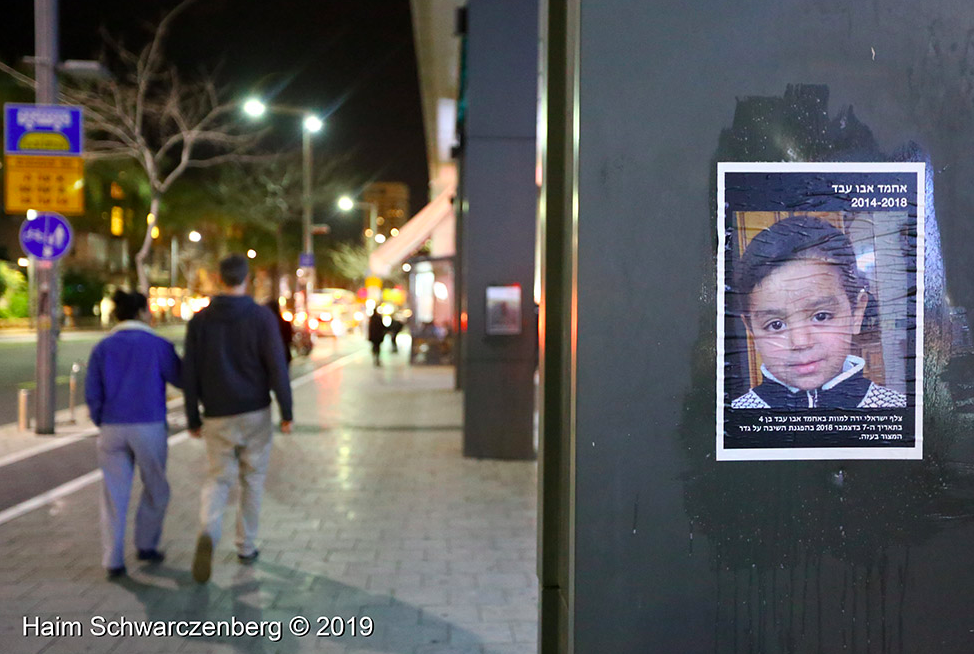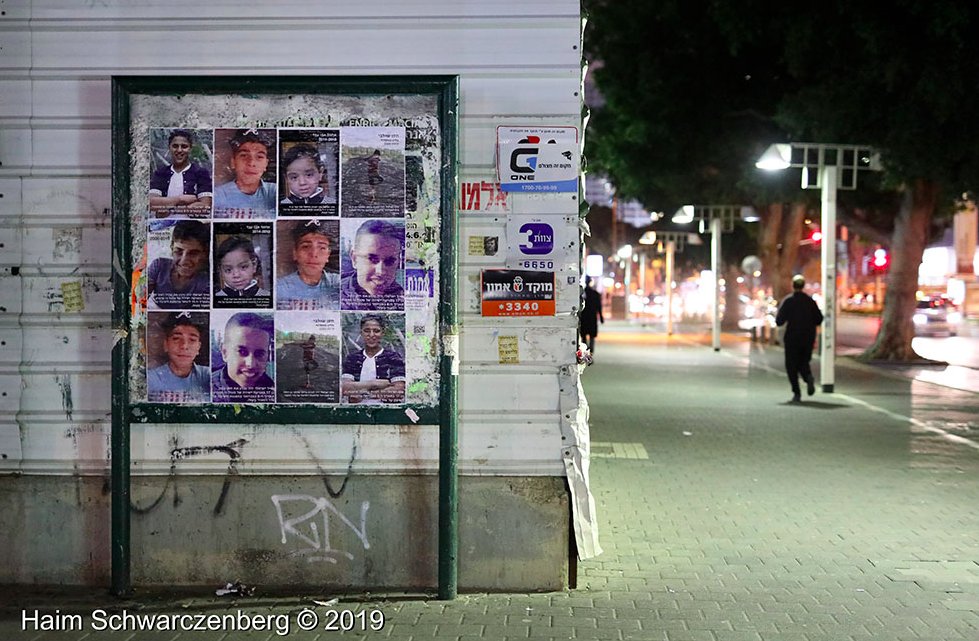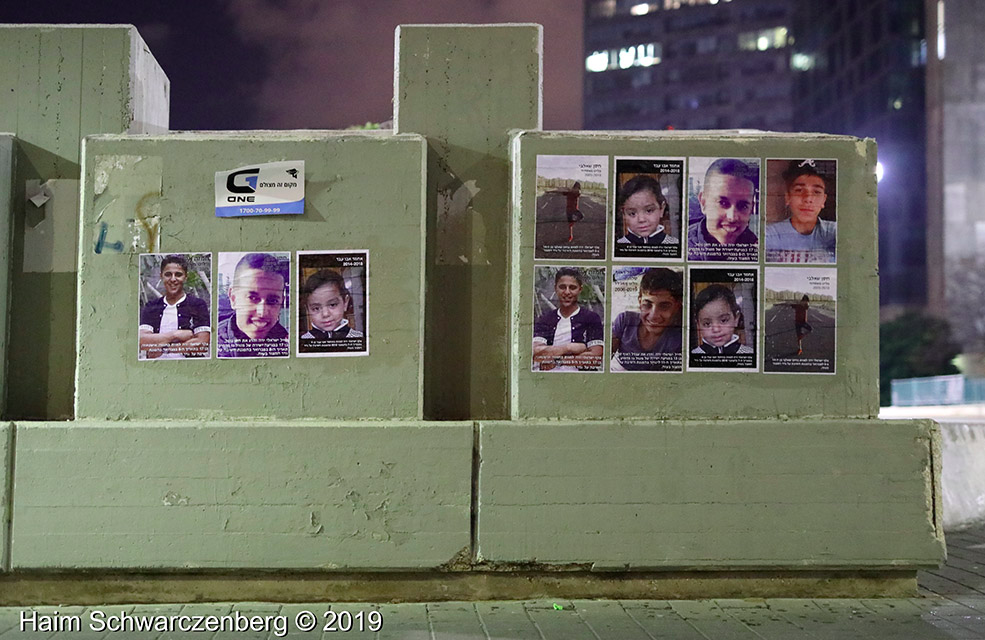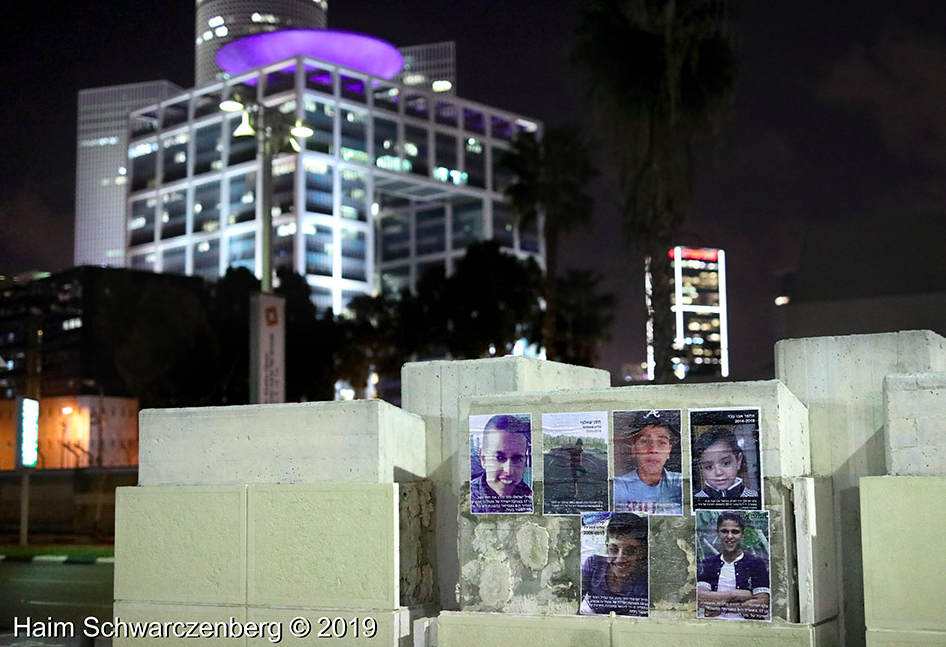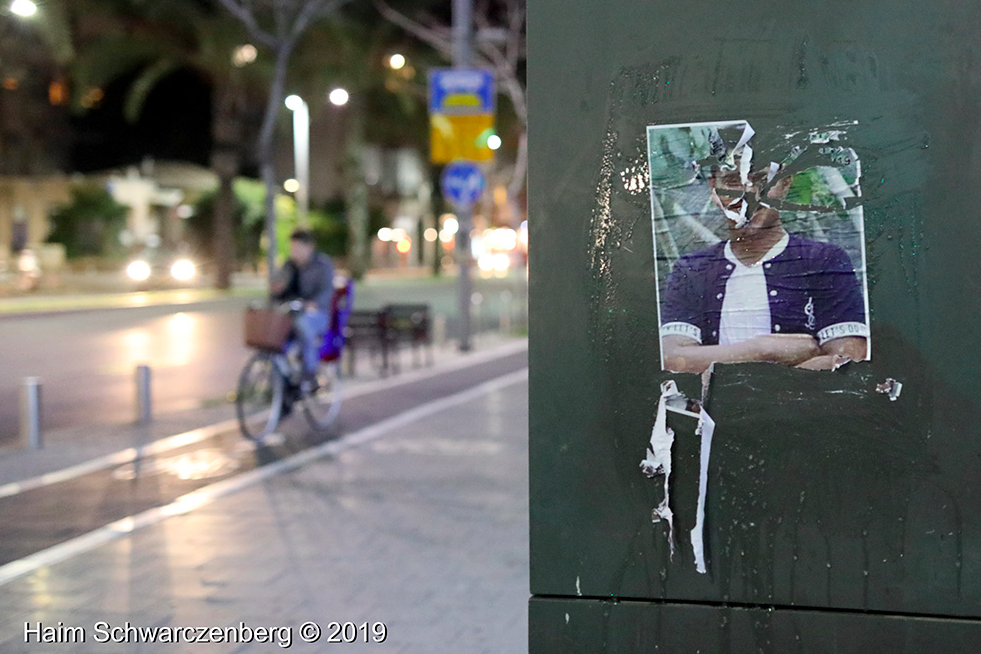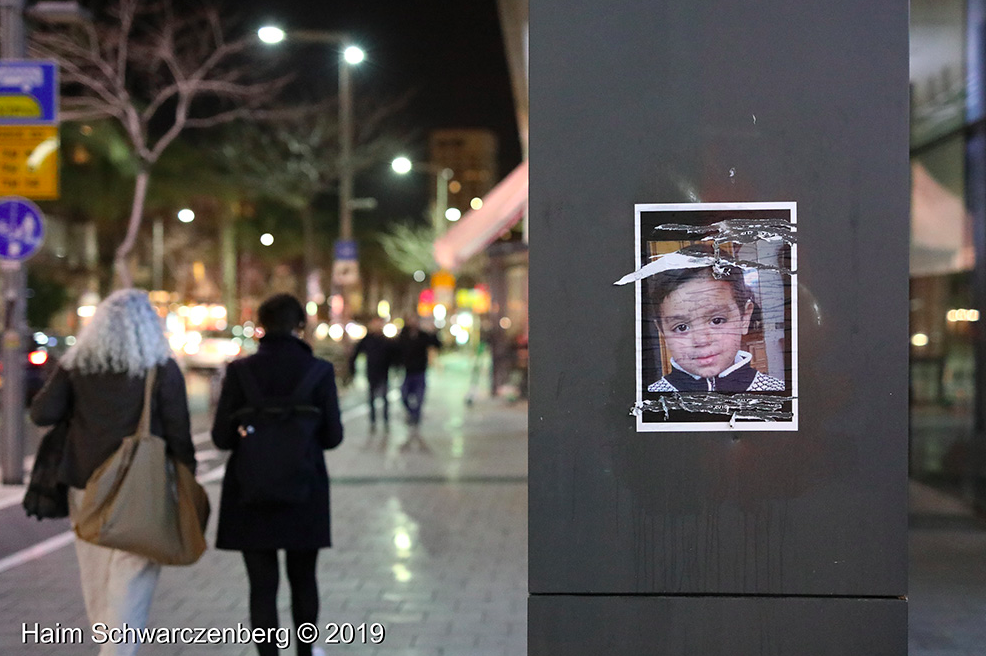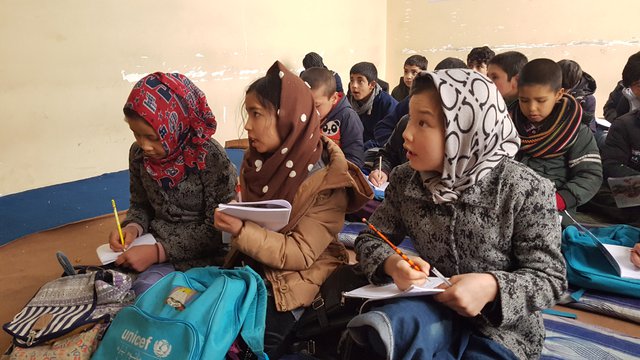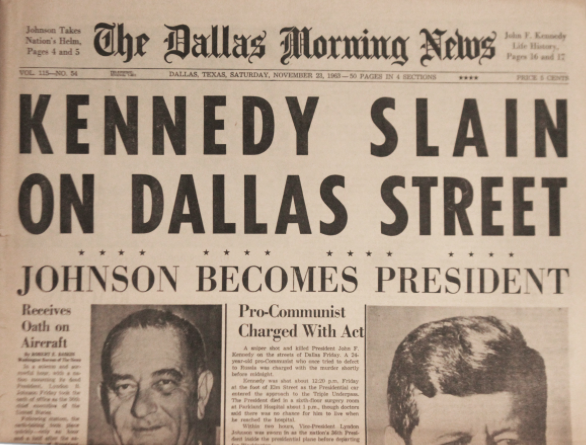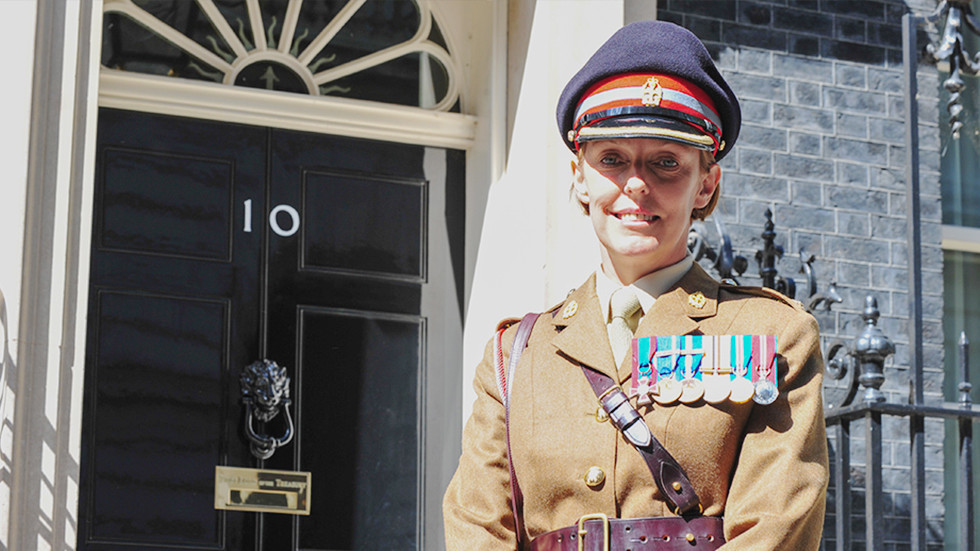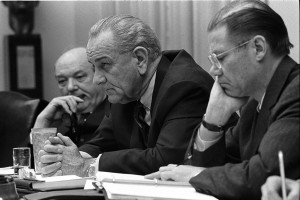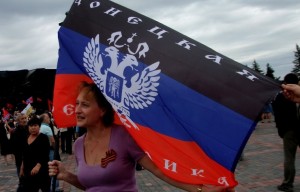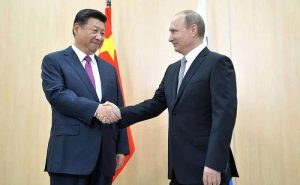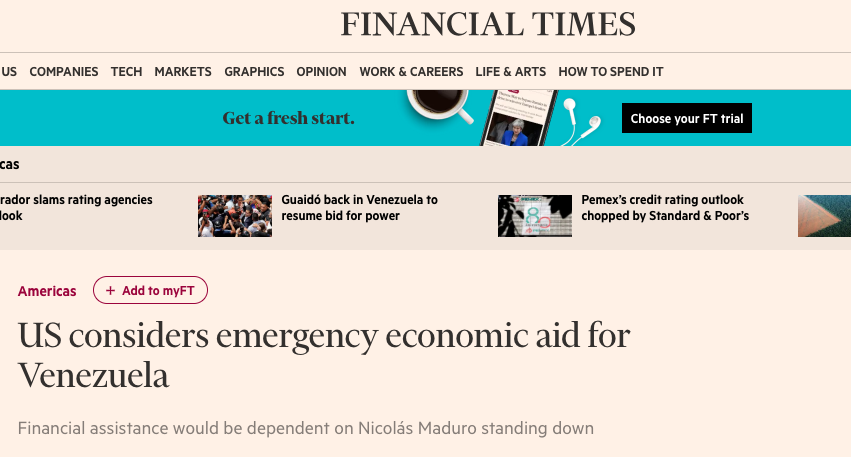For a while, all the guns have fallen silent.
I am near Idlib, the last stronghold of the terrorists in Syria. The area where the deadliest anti-government fighters, most of them injected into Syria from Turkey, with Saudi, Qatari and Western ‘help’, are literally holed up, ready for the final showdown.
Just yesterday, mortars were falling on villages near the invisible frontline, separating government troops and the terrorist forces of Al Nusra Front. The day before yesterday, two explosions rocked the earth, only a couple of meters from where we are now standing.
They call it a ceasefire. But it’s not. It is one-sided. To be more precise: the Syrian army is waiting, patiently. Its cannons are pointing towards the positions of the enemy, but the orders from Damascus are clear: do not fire.
The enemy has no scruples. It provokes, endlessly. It fires and bombs, indiscriminately. It kills. Along the frontline, thousands of houses are already ruined. Nothing gets spared: residential districts, sport gymnasiums, even bakeries. There is an established routine: assaults by the terrorists, rescue operations organized by Syrian armed forces (SAA – Syrian Arab Army) and Syrian National Defense Forces, then immediate rebuilding of the damage.
Hundreds of thousands of Syrian people have lost their lives in this war. Millions had to leave their homeland. Millions have been internally displaced. For many, the conflict became a routine. Rescue operations became routine. Rebuilding tasks became routine, too.
Now, it is clear that the final victory is near. Syria survived the worse. It is still bleeding, but most of its territories are beginning to heal. People are slowly returning home, from Lebanon and Turkey, from Germany and elsewhere. They go through rubble – their former homes. They sit down and cry. Then, they get up and start rebuilding. That’s in other parts of the country: Duma, Homs, Aleppo, Deir ez-Zur.
But in the villages and towns north of Hama and towards Idlib, the war is far from being over.
In the town of Squalbiah, Commander Nabel Al-Abdallah of the National Defense Forces (NDF) explained to me:
“SAA could easily use force and win militarily; it could take Idlib. But the SAA operates under command of President Assad, who believes in negotiations. If we take the city now, there would be huge casualties.”
*
The situation is not as simple, as we would like it to be. Victory may be near, but the West is not giving up, nor is Turkey. There are still pockets that are held by the US and French troops, and around Idlib (including Manbij), a large area is still controlled by the terrorists, who were transported here from all corners of Syria, under the Russian-sponsored agreement.
And there is more to it: My sources in Syria shared the latest:
“Some 4 months ago, the ’new ISIS’ appeared in the south of Idlib, not far from where we are right now. They were injected into Syria by the Turks. They were wearing brand new uniforms, white long dresses. Before, they were recognizable by black or gray outfits – ‘Afghan-style’. They now call themselves ‘Hurras Aldeen’, or ‘The Guardians of Religion’. Why? In order for the United States, and the West in general, to continue to support them. The ISIS are officially on the list of the terrorist organizations’, but this new ‘brand’ is not.”
I ask Commander Nabel Al-Abdallah, what the West really wants? He replies, immediately:
“The West wants terrorism to spread to Russia and China. Many terrorists work and fight directly for the interests of the United States.
We need to take care of the innocent civilians. But we also have to find the solution, very quickly. If we fail, terrorism will spread all around the world.”
We sit in the Commander’s provisory headquarters, having a quick cup of tea, before moving to the frontline.
He wants to say something. He thinks, how. It is not easy. Nothing is easy under the circumstances, but he tries, and what he utters makes sense:
“If we don’t have solution, soon, terrorists will damage the world. Our problems are not just the ISIS, but above all, the ideology that they represent. They use Islam, they say that they fight in the name of Islam, but they are backed by the United States. And here, the SAA, our military and our defense forces, are fighting for the world, not just for Syria.”
We embrace and I go. His men drive me in a military vehicle to the outskirts of As Suqaylabiyah (also known as Squalbiah). From there, I photograph a hospital and the positions of Al Nusra Front. They are there, right in front of me, just a couple of hundreds of meters.
I am told that I am like a sitting duck, exposed. I work fast. Luckily, today the terrorists are not in the mood for shooting.
Before returning to the vehicle, I try to imagine how life must be there, under Al Nusra Front or the ISIS occupation.
From the hill where I stand, the entire area looks green, fertile and immensely beautiful. But I know, I clearly understand that it is hell on earth for those who live in those houses down below; in the villages and towns controlled by some of the most brutal terrorists on earth.
I also know that, these terrorist monsters are here on foreign orders, trying to destroy Syria, simply because its government and people have been refusing to succumb to the Western imperialist dictates.
Here, it is not only about theory. The lives of millions have been already destroyed. Here it is all concrete and practical – it is reality.
We can hear explosions, in a distance. The war may be over in Damascus, but not here. Not here, yet.
*
My friend Yamen is from the city of Salamiyah, some 50 kilometers from Hama. Only recently the area around his home town was liberated from the extremist groups.
Twenty kilometers west from Salamiyah lies the predominantly Ismaili village of Al Kafat, which used to be surrounded by both Al-Nusra Front and the ISIS.
Mr. Abdullah, President of local Ismaili Council, recalls the horrors which his fellow citizens had to endure:
“In the past, we had two car bomb explosions here. In January 2014, 19 people were killed, 40 houses totally destroyed and 300 damaged. Fighting was only 200 meters away from here. Both Al-Nusra Front and ISIS surrounded the village, and were cooperating. We are very close to one of the main roads, so for the terrorists, it was an extremely important strategic position. This entire area was finally liberated only in January 2018.”
Whom do they blame?
Mr. Abdullah does not hesitate:
“Saudis, Turks, the USA, Europe, Qatar…”
We walk through the village. Some homes are still lying in ruins, but most of them have at least been partially restored. On the walls and above several shops, I can see the portrait of a beautiful young woman, who was killed during one of the terrorist assaults. 65 villagers were slaughtered, in total. Before the war, the population of the village was 3,500, but traumatized and impoverished by war, many decided to leave and now only 2,500 inhabitants live here, cultivating olive trees, herding sheep and cows.
Image on the right: These women survived life under ISIS

Before my visit here, I was told that education played an extremely important role in defending this place, and in keeping morale high during the darkest days of combat and crises. Mr. Abdullah readily confirmed it:
“The human brain has the capacity to solve problems, and to defuse crises. During a war like this, education is extremely important. Or more precisely, it is mainly about learning, not only about education. Al-Nusra and ISIS – they are synonymous with ignorance. If your brain is strong, it easily defeats ignorance. I think we succeeded here. And look now: this poor village has at this moment 103 students attending universities, all over Syria.”
As we drive on, east, large portraits of a brother of my friend Yamen decorate many military posts. He was one of the legendary commanders here, but was killed in 2017.
Then I see a castle: monstrous, more than two millennia old, overlooking the city of Salamiyah. There are green fields all around, so much beauty, in all the corners of Syria.
“Come back and visit all these marvels when the war is over,” someone around me jokes.
I don’t see it as a joke.
“I will,” I think. “I definitely will”. But we have to win, and win very soon, as soon as possible! To make sure that nothing else goes up in flames.
*
I drop my bag in at a local inn in Salamiyah, and ask my comrades to drive me on, further east. I want to see, to feel how life was under ISIS, and how it is now.
There are ruins, all around us. I saw plenty of terrible urban ruins during my previous visit: all around Homs and the outskirts of Damascus.
Here I see rural ruins, in their own way as horrifying as those scarring all the major cities of Syria.
This entire area had recently been a frontline. Or it was screaming in the hands of the terrorist groups, mainly ISIS.
Now it is a minefield. The road is cleared, but not the fields; not the remains of the villages.
I photograph a tank that used to belong to the ISIS; burned and badly damaged. It is an old Soviet tank, which used to belong to the Syrian army. It was captured by the ISIS, and then destroyed by either the SAA or a Russian airplane. Next to the tank – a chicken farm burned to the ground.
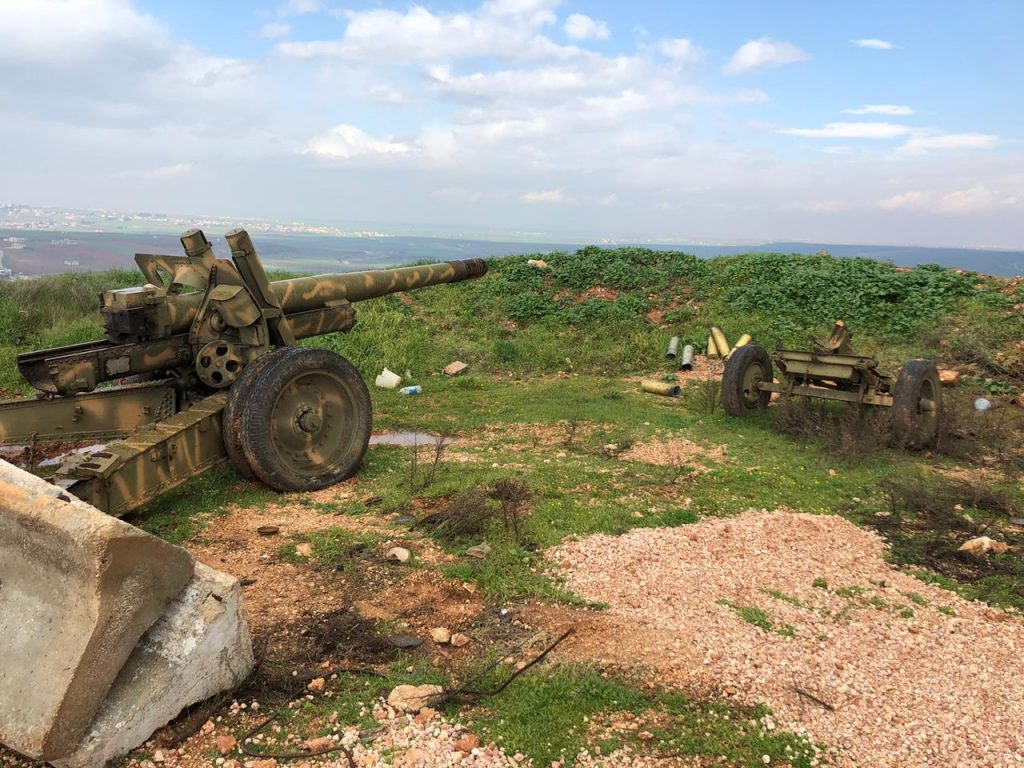
The Lieutenant, who is accompanying me, goes on, monotonously, with his grizzly account:
“Today, outside Salamiyeh, 8 people were killed by the landmines.”
We leave the vehicle, and walk slowly down the road, which is full of craters.
Suddenly, the Lieutenant stops without any warning:
“And here, my cousin was killed by another mine.”
*
We reach Hardaneh Village, but almost no one is left here. There are ruins everywhere. Before – 500 people lived here, now only 30. This is where heavy fighting against the ISIS took place. 13 local people were killed, 21 soldiers ‘martyred’. Other civilians were forced to leave.
Mr. Mohammad Ahmad Jobur is the local administrator (el muchtar), 80 years old:
“First, we fought ISIS, but they overwhelmed us. Most of us had to leave. Now some of us returned, but only few…Yes, now we have electricity; at least 3 hours a day, and our children can go to school. The old school was destroyed by the ISIS, so kids are now collected and taken to a bigger town for education. Every villager wants to come back, but most of the families have no money to rebuild their houses and farms. The government made a list of the people whose dwellings were destroyed. They will get help, but help will be distributed gradually, stage by stage.”
Naturally: almost the entire country lies in ruins.
Are villagers optimistic about the future?
“Yes, very optimistic,” declares the village chief. “If we get help, if we can rebuild, we will all come back.”
But then, they show me the water wells, destroyed by the ISIS.
It is all smiles through tears. So far only 30 have come back. How many will come home this year?
I asked the chief what the main aim of the ISIS was?
“No aim, no logic. ISIS was created by the West. They tried to destroy everything, this village, this area, this entire country. They made no sense… they do not think like us… they only brought destruction.”
*
Soha, a village even further east, a place where men, women and children were forced to live under the ISIS.
I am invited into a traditional house. People sit in a circle. Several younger women are hiding their faces, not wanting to be photographed. I can only guess why. Others don’t care. What happened here; what horrors took place? Nobody will pronounce it all.
This is a traditional village inhabited by a local tribe; very conservative.
Testimonies begin to flow:
“First, they banned us from smoking, and shaving. Women had to cover their faces and feet; they had to wear black… Strict rules were imposed… education was banned. The ISIS created terrible prisons… They were often beating us with rubber hoses, in public. Some people were beheaded. Severed heads were exhibited above the main square.”
“When ISIS arrived, they brought with them their slaves – kidnapped people from Raqqah. Some women got stoned in public, alive. Other women were thrown to their death from the roofs and from other high places. They were amputating hands… Various women were forced to marry ISIS fighters…”
An uncomfortable silence followed, before the topic got changed.
“They killed 2 men from this village…”
Some say more, many more.
Several youngsters joined the ISIS. 3 or 4… ISIS would pay $200 to each new combatant who subscribed. And of course, they were promising heaven…
In one of the villages, I am shown a big rusty cage for ‘infidels’ and “sinners”. People were locked in there like wild animals, and kept exposed, in the open.
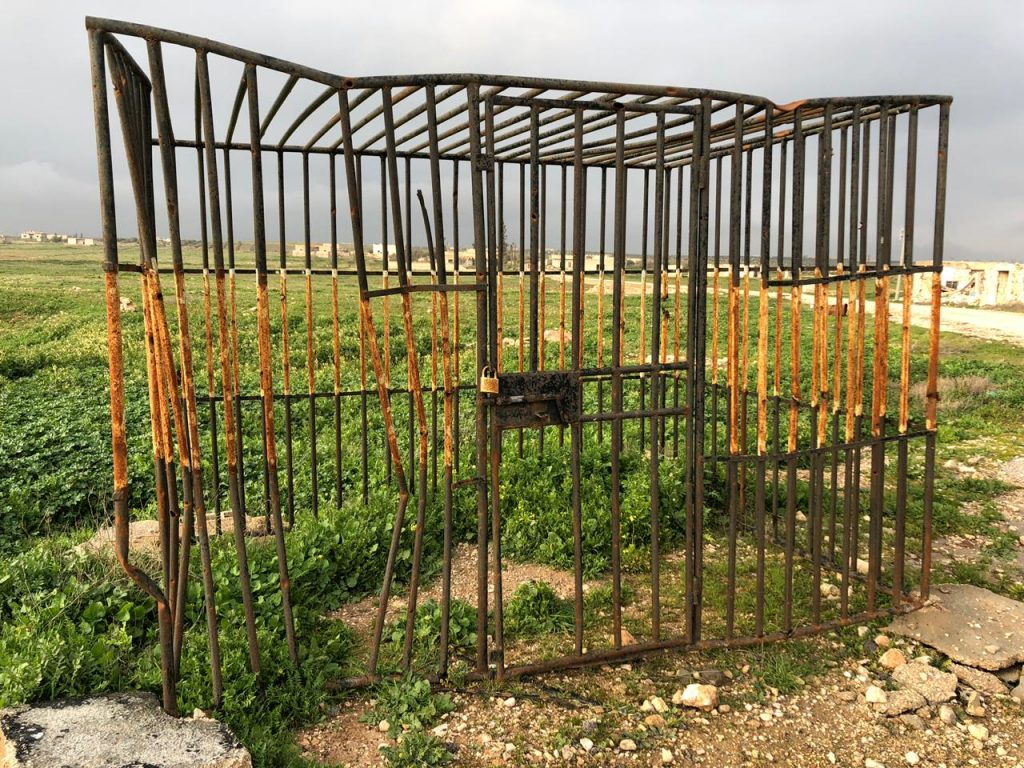
ISIS cage for infidels and sinners
I see the destroyed ‘police’ building of the ISIS. At one point I am offered some papers – documents – which are just scattered all over the floor. I don’t want to take any with me, not even as a ‘souvenir’.
Testimonies continue to flow:
“They were beheading people for being in possession of mobile phones… Local villagers were disappearing… they were kidnapped…”
At some point, I have to halt this flow of testimonies. I can hardly process all that is being said. People are shouting over each other. One day, someone should take it all down, to record it, to file it. I do what I can, but I realize that it is not enough. It is never enough. The scale of the tragedy is too great.

By now it is getting dark… and then it is dark. I have to return to Salamiyeh, to rest a bit; to sleep for a few hours, and then to return to the frontline, where both the Syrian and Russian soldiers are bravely facing the enemy. Where they are doing all that is humanly possible to prevent those gangsters sponsored by the West and their allies, from returning to the already liberated areas of the country.
But before I fall asleep, I recall; I am haunted by the image of a little girl who survived the occupation of her village by the ISIS. She stood resting her back against the wall. She looked at me for a while, then lifted her hands and moved her fingers quickly across her throat.
*
The next day, the Commander of the National Defense Forces in Muhradah, Simon Al Wakel, drives me all around the city and the outskirts, Kalashnikov resting next to his seat. It is a quick and matter-of-fact ‘tour’:
“This is where the mortars landed two days ago, there is a power plant which was liberated from the terrorists, and this is a huge gymnasium attacked by the terrorists simply because they hate that our girls excel in volleyball and basketball.”
Image on the right: Driving to the front with Commander Simon
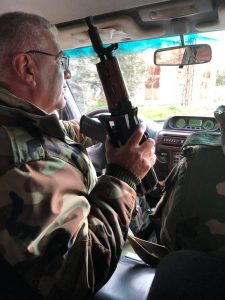
We talk to locals. Commander Simon gets stopped in the middle of the streets, embraced by total strangers, kissed on both cheeks.
“I have been targeted more than 60 times,” he tells me. One of his former cars is rotting at a remote parking lot, after it was hit and burned by the terrorists.
He shrugs his shoulders:
“Russians and Turks negotiated the ceasefire, but obviously, terrorists do not respect any agreements.”
We return to the frontline. I am shown the Syrian cannons pointing towards the positions of Al Nusra Front. The local headquarters of the terrorists is clearly visible, not too far from the magnificent ruins of the Sheizar Citadel.
First, I see the Syrian soldiers, operating slightly outdated Soviet as well as newer Russian equipment: armed vehicles, tanks, “Katyushas”. Then I spot several Russian boys settling down in two houses with a commanding view of the valley and the enemy territory.
Both the Syrian and Russian armies, shoulder to shoulder, are now facing the last enclave of the terrorists.
I wave at the Russians, and they wave back at me.
Everyone seems to be in a good mood. We are winning. We are ‘almost there’.
We all also know that it is still too early to celebrate. Terrorists from all over the world are hoarded in the area in and around the city of Idlib. The US, UK and French “Special Forces” are operating in several parts of the country. The Turkish military keeps holding big chunk of the Syrian land.
The weather is clear. The green fields are fertile and beautiful. The nearby citadel is imposing. Just a little bit more of determination and endurance, and this wonderful country will be fully liberated.
We all realize it, but no one is celebrating, yet. Nobody is smiling. The facial expressions of the Syrian and Russian comrades are serious. Men are looking down towards the valley, weapons ready. They are fully concentrated. Anything may happen; anytime.
I know why there are no smiles; we all know: Soon, we may defeat the enemy.Soon, the war may end. But hundreds of thousands of Syrian people have already died.
*
Note to readers: please click the share buttons below. Forward this article to your email lists. Crosspost on your blog site, internet forums. etc.
Andre Vltchek is a philosopher, novelist, filmmaker and investigative journalist. He has covered wars and conflicts in dozens of countries. Four of his latest books are China and Ecological Civilizationwith John B. Cobb, Jr., Revolutionary Optimism, Western Nihilism, a revolutionary novel “Aurora” and a bestselling work of political non-fiction: “Exposing Lies Of The Empire”. View his other books here. Watch Rwanda Gambit, his groundbreaking documentary about Rwanda and DRCongo and his film/dialogue with Noam Chomsky “On Western Terrorism”. Vltchek presently resides in East Asia and the Middle East, and continues to work around the world. He can be reached through his website and his Twitter.
All images in this article are from the author. Featured image: Territory held by Al Nusrah Front, including their military hospital
